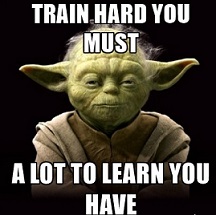I just found out a close friend has cancer. I was shocked by the news. Although her cancer is highly treatable, it was a complete surprise. She will need to go through 6 months of chemo and hell to recover. I share this with you to help you step back from the daily grind and see the big picture. Life is short and finite.
- Are you on the right career path?
- Are you doing what you are suppose to be doing?
- If you were told you have cancer today, would you make different choices in your career and life?
Our life is a gift. Don’t wait until you have shocking news in your life to reexamine. It’s never too early to reassess or take a different direction altogether. Today, I want to help you answer these questions.
Many of us work long hours, forgo time with family, friends, and skip vacations, so we can get ahead in our career. But do we know why we do it? The superficial answer is to make more money, or get promoted, or be recognized. But I would argue none of that really help us feel fulfilled.
Our career path must have a deeper meaning for it to be worth the effort and the time away from our families. That meaning will also help ground us if we receive sad unexpected news like this from a friend or from a doctor about our own health.
Here are 4 questions to help you examine your current career path and trajectory?
Question 1: Does my job & career make a difference somehow? I have shared the definition of success before. It’s not about material status, and much more about our level of contribution to others. Making a difference comes in all forms. For example, it can be about
earning money so I can support my family and my kids’ education
making a positive impact to the customers my company serves (whether with a new product I launch or solving service issues painlessly)
coaching those on my team so they can learn from my experience and skills
... read more





